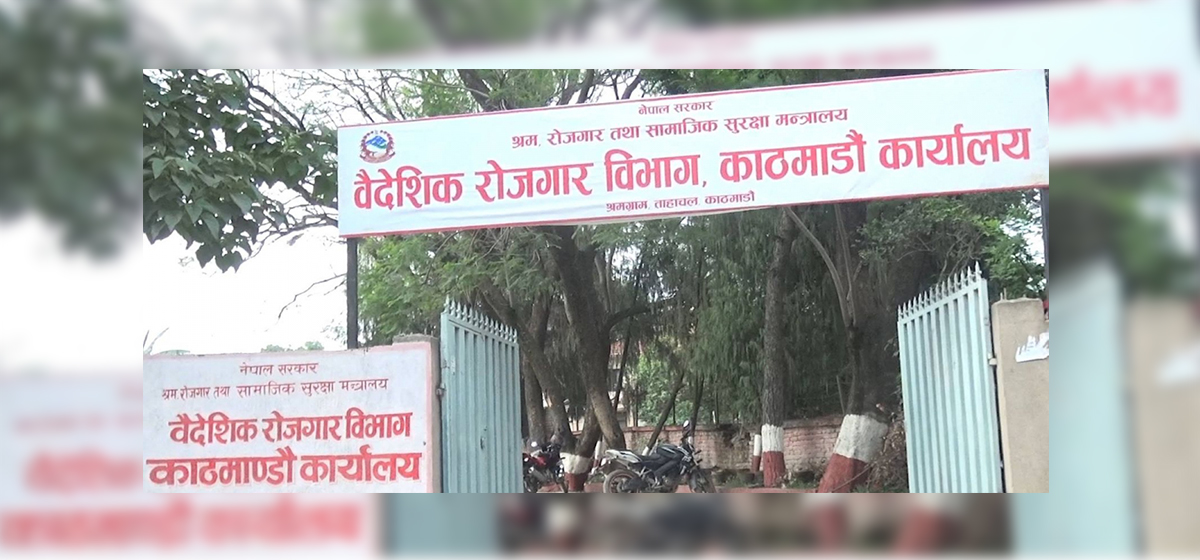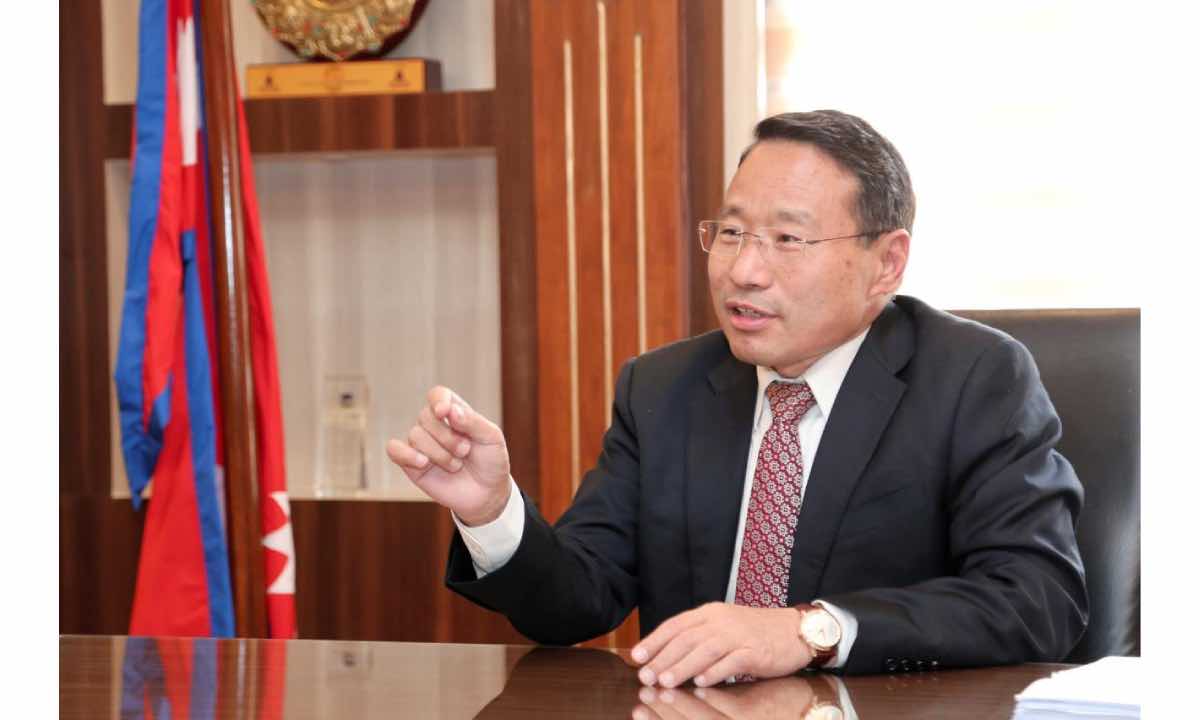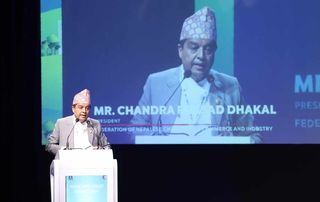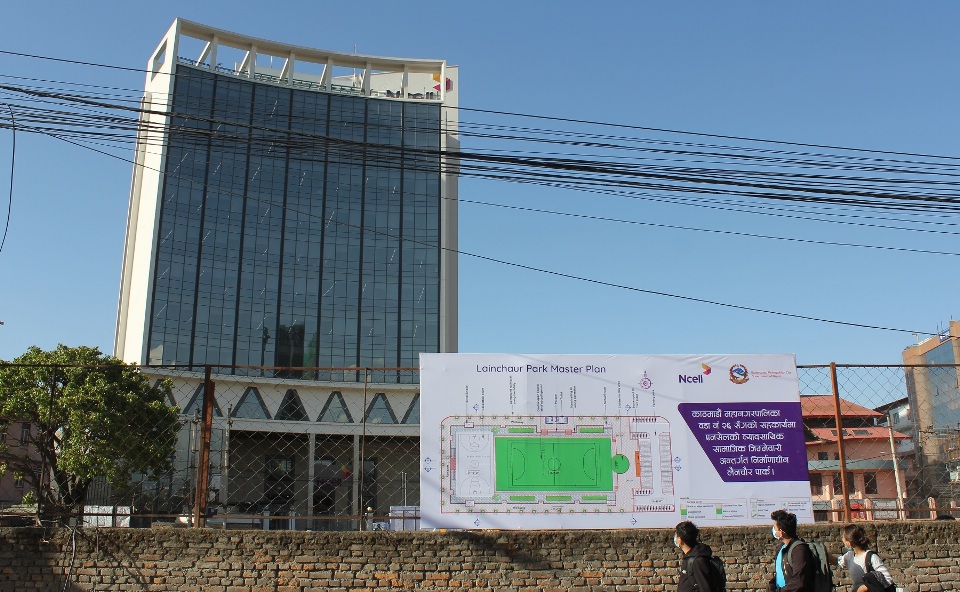
OR
414 foreign nationals receive work permits in Nepal in five months of current FY
Published On: January 3, 2024 09:30 PM NPT By: Sabita Khadka

KATHMANDU, Jan 3: For years, a significant number of Nepali youths have been seeking employment abroad due to the challenges of finding jobs within the country. The lack of interest among Nepali youths in the available domestic job opportunities has resulted in a significant surge of foreigners coming to Nepal to work in various fields. The remittances sent back to their home countries by these foreign workers contribute significantly to their economies. In the first five months of the current fiscal year (mid-July to mid-December), 414 foreign nationals were granted work permits in Nepal, while during the same period, approximately 300,000 Nepalis migrated abroad for employment.
According to data from the Department of Labor and Occupational Safety, 414 non-Nepali nationals obtained work permits in Nepal from mid-July to mid-December. The department also reported the renewal of work permits for 545 non-Nepali citizens during this period.
In contrast, the Department of Foreign Employment (DoFE) issued work permits to 43,622 Nepalis in Kartik (mid-October to mid-November), a number that surged to 71,276 in Mangsir (mid-November to mid-December). The DoFE statistics states that in Kartik and Mangsir alone, 102,624 men and 12,234 women obtained work permits.
However, many Nepali youths migrate abroad due to limited employment opportunities domestically, with an average of more than 2,500 young people migrating daily for employment, both through institutions and individually.
In the first five months, the skilled manpower abroad comprises 195,465 skilled, 57,689 unskilled, and 23,683 semi-skilled individuals. Within this period, 238 highly skilled and 517 young people went abroad for professional work, as per DoFE data.
“Young people from India and Bangladesh come to Nepal for work and send money back to their countries, causing a loss for Nepal. The government has overlooked this issue while not taking steps to retain skilled individuals in the country. Instead of offering opportunities to skilled youth domestically, the government merely keeps count of those going abroad,” labor and immigration expert Ganesh Gurung said.
Gurung added that the government should conduct skill development training programs, stimulate job creation, establish export-oriented industries, enhance employment access through information systems, allocate resources for self-employment and income generation, and recognize and reward young returnees from foreign employment to encourage entrepreneurship.
Despite the introduction of the Prime Minister Employment Program (PMEP) as an alternative to foreign employment, its effectiveness is questioned, given the continuous rise in the number of Nepali youths seeking work abroad. Gurung expressed concern, stating the necessity for the government to address economic growth and job creation failures, especially in reconstruction efforts.
However, assurances from the Ministry of Labour, Employment and Social Security (MoLESS) regarding alternatives to foreign employment, concrete plans have not materialized. Experts argue that creating immediate alternatives within the internal labor market is not feasible.
Kabiraj Upreti, information officer of the DoFE, defended the trend of skilled workers seeking employment abroad, citing the higher income potential. He stated the increasing presence of educated youth in the foreign workforce.
In the fiscal year 2022/23, a total of 771,327 Nepalis left in search of employment after obtaining work permits from the DoFE. Among them, 506,746 are skilled, 202,616 are unskilled, and 60,555 are semi-skilled.
You May Like This

Empty Universities and Packed Suitcases: Is This The Future?
It is imperative to remember that it is not the departure of students that will haunt us, but it is... Read More...

Fixing the Unemployment and Skills Gap
Why are youths leaving the country? I asked the question to a class of pre-diploma level students in Saraswati Higher... Read More...

Nepali women being sold abroad in the name of foreign employment: SP Bajracharya
BHAKTAPUR, Aug 12: Superintendent of Police (SP) at the Metropolitan Police Circle Bhaktapur, Kiran Bajracharya, has stated that many Nepali... Read More...



Just In
- 3rd Investment Summit: Govt seeking letters of intent for 20 projects
- Gold price increases by Rs 400 per tola
- ‘We have established a long-term vision and policy stability in key investment sectors’
- FNCCI President Dhakal invites investors to explore Nepal's promising sectors
- The South Korean Development Formula
- T-20 series: Nepal playing second match against West Indies ‘A’ today
- Investing in Nepal: Challenges and Opportunities
- ‘Nepal should focus on ease and speed of doing business’







-1200x560-wm_20240427144118.jpg)








Leave A Comment